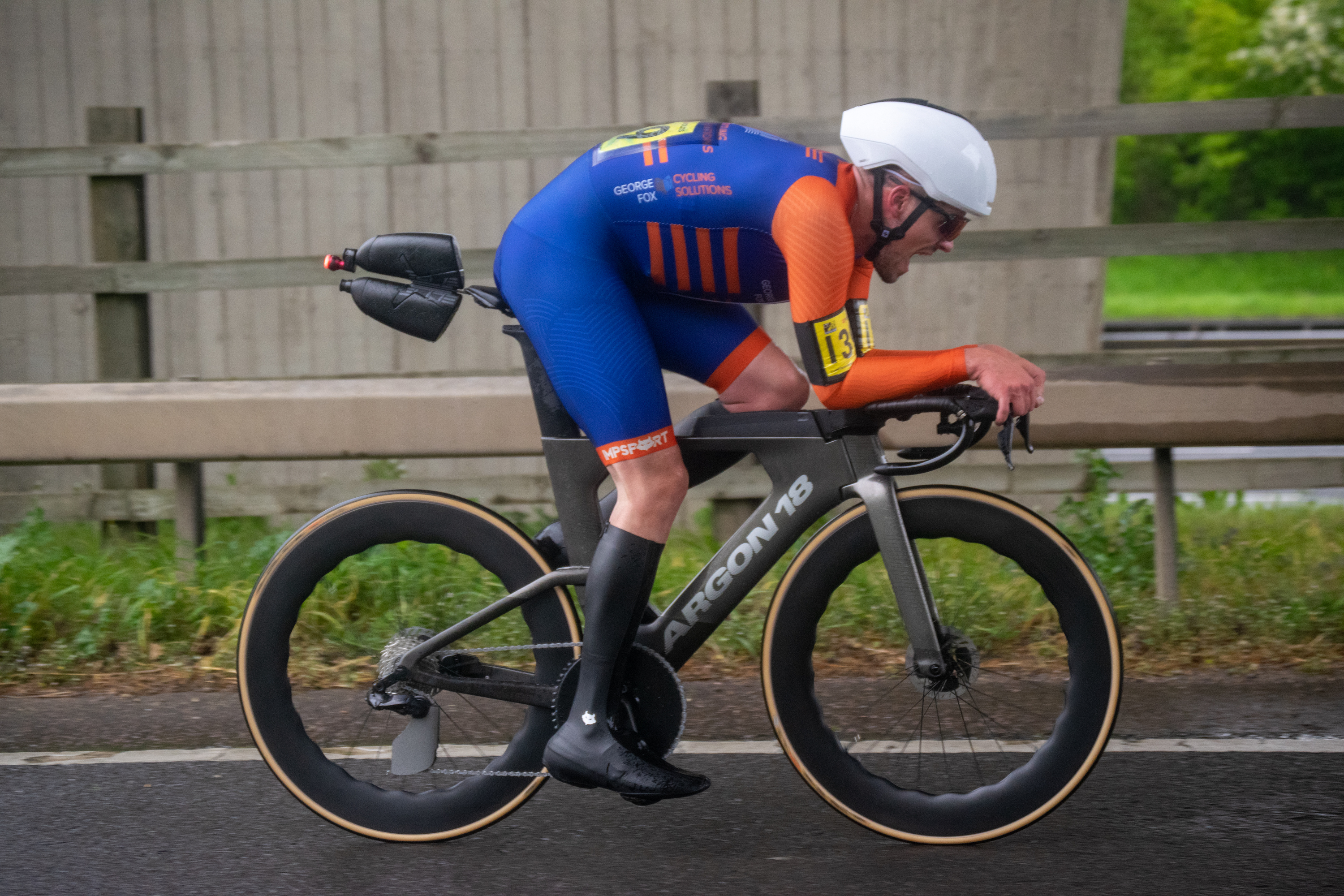
A British time trialist has set a new road bike record over 10 miles, using a machine that garnered him "a load of stick".
George Fox knocked two seconds off the existing benchmark last Thursday, when he rode 18 minutes and 33 seconds on a course in Northamptonshire, averaging 32.3mph (52km/h).
Fox achieved the record, which is not officially recognised by the Cycling Time Trials (CTT) body, on his Argon 18 bike with an E119 triathlon frame.
Road bike time trial categories have become more prevalent in recent years as UK time trialling attempts to make events more accessible for those who don't want to invest in a dedicated time trial bike. However, with specialists pushing the boundaries in pursuit of improved aerodynamics, questions have been raised as to what a 'road bike' looks like.
Following his win at April's National Road Bike Time Trial Championships, the 30-year-old faced complaints about his bike and position, which led to a disciplinary hearing. He was found not to have breached any rules, and was awarded the victory.
"Last year I copped a load of stick, and at the start of this year," he tells Cycling Weekly. "There's a lot of people who are, what's the best way of putting it, not happy with the set-up I've used."
Fox competes under the banner of his bike fitting and coaching company, George Fox Cycling Solutions, and has always had a keen interest in optimisation.
In the wake of his disciplinary hearing, he jokes, his bike is now "arguably the only CTT-approved road bike", but it continues to raise questions on social media.
"A lot of people that are in the sport still come from an era where it's round steel tubes, and they don’t like change," he says. "They look at [my bike] and go, 'Well that doesn't look like my road bike, so now I've got an opinion on it.'
"I think that's why there's always so many comments, because people love to hate it. They're not racing, but they can relate to it. They go, 'That doesn't look like mine, so it can't be one.'"
While his disciplinary hearing was ongoing, Fox chose not to use his road bike for seven weeks, and was told by one race organiser that he would be disqualified if he tried to take part. The legal fees, he says, were "one of the most expensive parts" of his National Championships bid.
"I'm very much a function-over-form person. If it works, and it's fast, I'll use it," he says. "Once the rules are set by the CTT each year, you've got a good idea of what you can and can't do, which sort of sets the boundaries. It's obviously a case of working within that.
"Ultimately, if you're in a sport that uses technology, then you have to embrace it, because if you don't embrace it, you get left behind very quickly."
Despite complaints about his bike, Fox is keen to stress that it's the shape of the rider's body that really makes a difference in races, something he found out in wind tunnel testing.
"In terms of the drag, the body is 80 to 85% of it. It's the position that makes us fast, not the bike," he says. "Ultimately, it's being able to produce the power in that position that wins the race."







